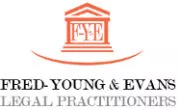The essence of parties referring their dispute to arbitration is for the arbitral tribunal to make a valid and reasoned award which is capable of being enforced in a jurisdiction where the unsuccessful party has assets to satisfy the arbitral award.
Usually, after an award is made, the successful party writes to the unsuccessful party to settle the sums awarded in the arbitral award within the time stipulated in the award. But what can a successful party do when the unsuccessful party fails to settle the sums awarded in the arbitral award within the time stipulated in the award?
Since an arbitral tribunal does not have coercive powers, the successful party would invoke the coercive powers of the Court within the jurisdiction where the unsuccessful party carries on business for the award to be recognised and enforced against the unsuccessful party.
In Nigeria, irrespective of the Country in which an award was made, by the provisions of Section 31 and 51 of the Arbitration and Conciliation Act (“the Arbitration Act”), the successful party may apply to a Nigerian Court in writing, usually by an originating motion, for the award to be recognised and enforced.
The application shall be accompanied with the authenticated original arbitral award or duly certified copy and the original arbitration agreement or a duly certified copy. Where the arbitration agreement or arbitral award is not made in English language, a duly certified translation of both would suffice. Upon leave of Court, the arbitral award shall be enforced in the same manner as a judgement or order of the Court and shall have the same effect.
Also, Section 54 of the Arbitration Act makes the provisions of the Convention on the Recognition and Enforcement of Foreign Awards, 1958 (“the New York Convention”) to apply to the recognition and enforcement of an award made in Nigeria or any contracting Country by a Nigerian Court.
Article III of the New York Convention provides that arbitral awards may be recognised and enforced according to the rules of procedure of the Court where it is to be enforced. The Court shall not impose a more stringent condition or higher fee on arbitral awards to which the Convention applies more than that imposed for recognition and enforcement of domestic arbitral awards.
This means a Nigerian Court would consider the same conditions and fees in recognising and enforcing an arbitral award made in Nigeria as well as those from other Countries who are signatories to the New York Convention.
Originally published by Fred-Young & Evans, July 2020
The content of this article is intended to provide a general guide to the subject matter. Specialist advice should be sought about your specific circumstances.



